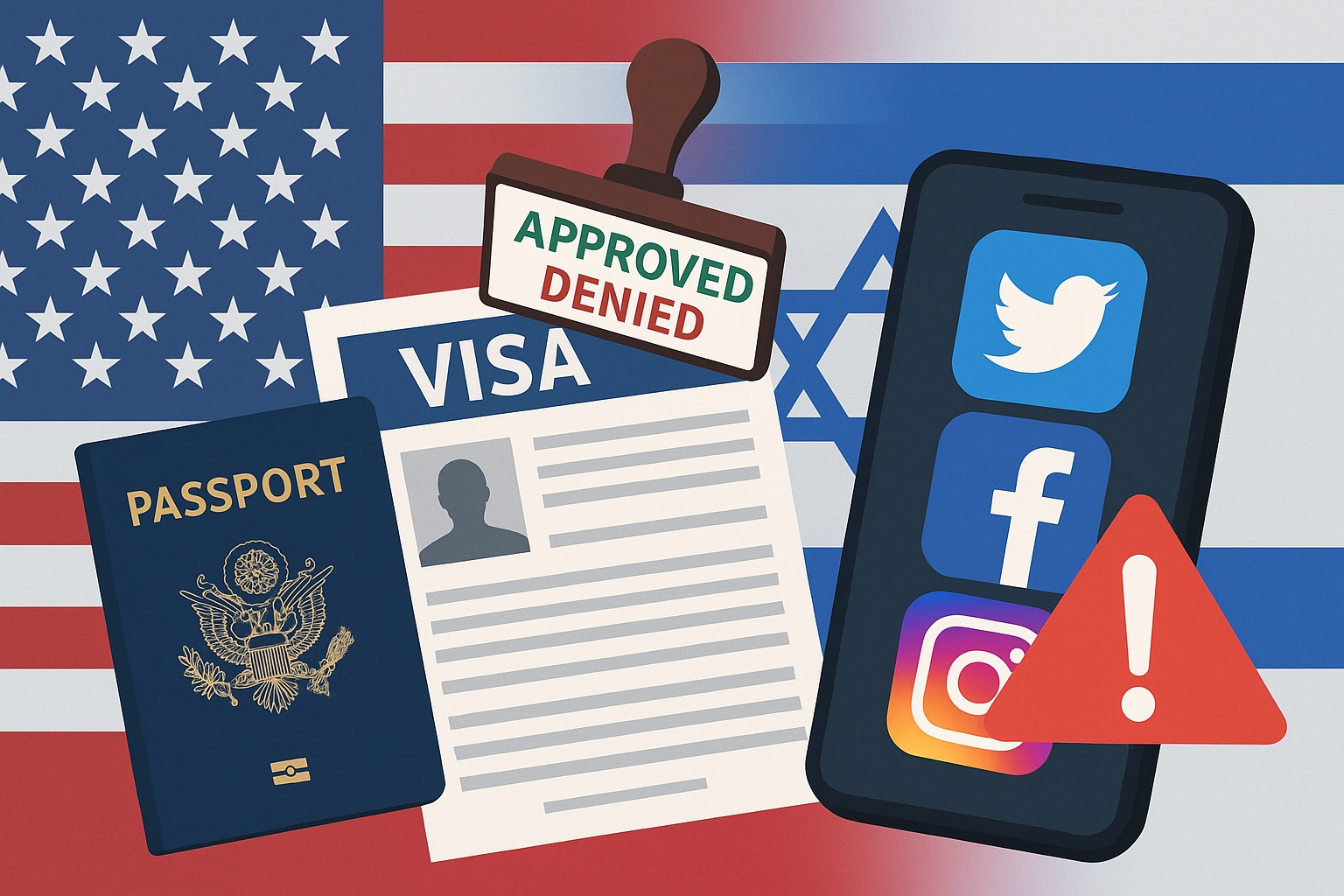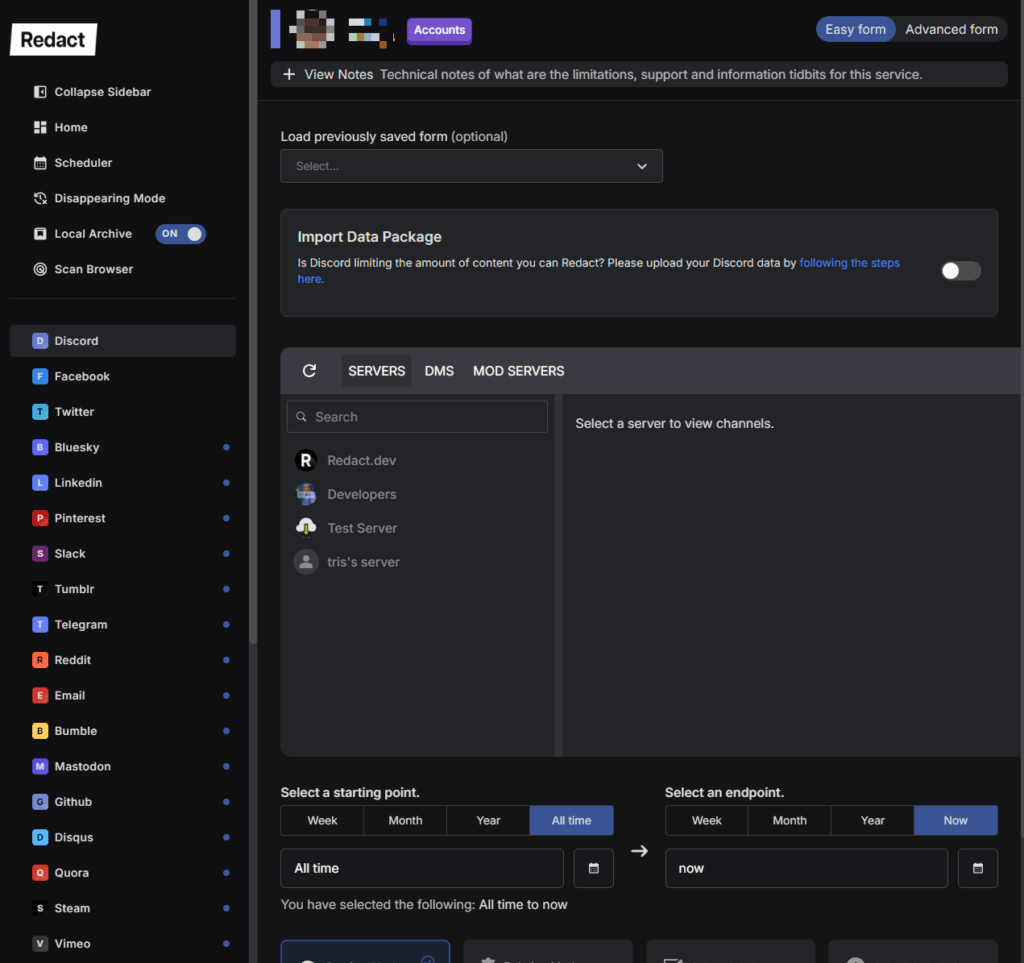
How to Clean Up Your Social Media Before Applying for a U.S. Visa
Categories: Cybersecurity, Data, Data Privacy, Digital Footprint, Government, Privacy Guides, Redact Features, Social Media, Surveillance, Tutorials
Scrub Before You Submit: Visa Screenings and the Rise of Social Media Background Checks by the Trump Admin
Applying for a U.S. visa in 2025 means more than just paperwork and an interview. Consular officers are now reviewing your social media accounts as part of the screening process, adding a new layer of scrutiny that can catch applicants off guard. From tweets and Facebook posts to YouTube comments and Reddit threads, your digital past is now part of your visa application under the new Trump Administration. Here is the official list of sites on the government’s checklist.
This shift in policy doesn’t just apply to new applicants. Student visa interviews, which were briefly paused in May 2025, resumed with updated procedures requiring all applicants to make their social media accounts fully visible to the U.S. State Department. Officers are instructed to look for signs of hostility toward the United States, Israel, or any of their institutions. Even private or locked accounts can be flagged as suspicious. In a process where credibility matters, your old posts can suddenly carry new weight.
For anyone with years of online content, this raises a critical question: how do you clean up your social media history before it becomes a liability?
Your Social Media Footprint Is Now a Factor in U.S. Visa Applications
Even seemingly harmless posts can be misinterpreted when reviewed out of context. Jokes, political opinions, memes, or personal rants from years ago may come across very differently under the lens of a government official reviewing hundreds of applications per day. And it is not just about what you post publicly. Comments, likes, and even private messages on certain platforms can all be reviewed.
That is why more and more people are turning to tools that can help them control their online history before applying for a visa.

What types of social media posts are they looking for, exactly?
- Negative sentiments toward the United States: This encompasses material that shows disdain for its people, traditions, leadership, organizations, or core values.
- “Antisemitic” behavior or endorsement of antisemitic terrorist entities: The Department of Homeland Security (DHS) has stated that online posts reflecting such conduct will serve as an adverse element in decisions regarding optional immigration perks.
- Menacing statements, radical beliefs, or connections to radical factions: This covers posts implying participation in acts of terror, aggression, or prejudice-based organizations, as noted by the Phyllo API.
- Misinformation or advocacy drives: Initiatives aimed at disseminating false information or adversely shaping societal views could face examination.
- Illegal conduct: Indications of engagement in unlawful actions, like substance abuse or other offenses, might be taken into account.
Enter Redact.dev: A Social Media Cleanup Tool That Actually Works Across 30+ Social Media Sites

Redact.dev is one of the most comprehensive tools available for deleting or cleaning up social media content. We support dozens of platforms, including Twitter, Reddit, Facebook, Discord, LinkedIn, YouTube, and more. The app allows users to search and delete posts based on keyword, date range, or platform, making it easy to target specific content that might cause trouble.
You can delete entire account histories or only remove specific items. Redact.dev also offers a preview feature, letting you review what will be deleted before you commit. Whether you want to quietly delete that Reddit argument from 2016 or wipe your entire Twitter feed, Redact.dev gives you the tools to do it fast.
Our app works locally on your machine. This means your social media data is not uploaded or stored by Redact, giving you more control and privacy. It also supports scheduled cleanups, letting you automate digital hygiene over time.
Smart Cleanup Tips Before You Apply for your U.S Visa

If you are preparing for a visa interview or submitting a new application, here are some practical steps you can take using Redact.dev:
- Set your social media profiles to public if required, but clean them up first
- Use Redact keyword targetting to search for political posts, jokes, or controversial topics
- Delete old content that no longer reflects your values or might appear hostile
- Review comments, replies, and likes in addition to original posts
- Consider removing DMs or Discord messages that could be flagged
- Schedule routine cleanups if you stay active online during your visa process
Remember, you may be asked to give the agents full access to your social media. This could include both your public and private profiles. They can even go as far as to ask for login access to view things like DMs, likes, and saved content.
Don’t Allow Your Social Media History to Jeopardize Your Education or Travel Opportunity
Your social media history is no longer separate from your immigration journey. In today’s digital-first world, your online presence can affect your visa eligibility just as much as your academic records or financial documents. Using a tool like Redact.dev puts the control back in your hands, allowing you to present the version of yourself you want immigration officials to see.
Cleaning up your digital footprint is not about hiding who you are. It is about understanding how your data is used and taking responsible steps to protect yourself in a system that now evaluates both your past and your posts.